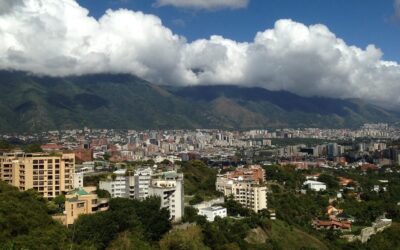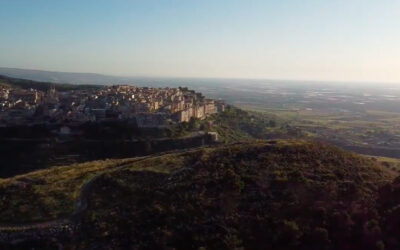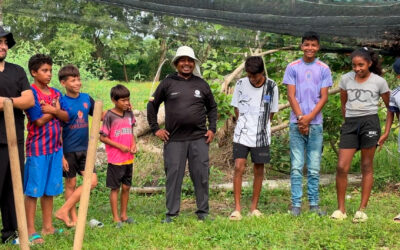 “We prepared ourselves for marriage certain that we would commit ourselves for the rest of our life. But already after the birth of our daughter, he started to go out alone and I, who was always exhausted due to work and maternity, aside from still being in love with him, I did not realize at once that something was wrong. What followed were 13 years of lies and quarrels, alternating with false clarifications which were followed by continuous delusions. I was exhausted and on the verge of a nervous breakdown (my weight dropped to 36 kilos) and so finally I surrendered, and gave my husband his freedom. After three years I met one of my former classmates, he too was a father and separated from his wife. Initially I tried to resist the sentiments that I felt were growing within me because, if on one hand the fact of feeling myself loved gave me much joy, on the other hand I had to face the problem of my Christian faith. They were very difficult moments. But then the doubts disappeared because, I told myself, it is true that when I got married I thought that it would be ‘forever’ but if love is no longer reciprocated, why can’t I continue with another person in that vocation of family life which I have always felt as mine? Certain of our love for one another we decided to join our two broken lives. After around two years of living together, we had a son, whom we had baptized and who we try to educate in a Christian way. For my partner – a person who is very honest and upright who considers himself as a non-believer – the problem of belonging to the Church does not exist. I, instead, continued to go to Sunday Mass and, even in suffering, I accepted the standpoint of the Church by abstaining from receiving the sacraments of Reconciliation and the Eucharist. I could have gone to a church were no one knew me, but out of obedience I didn’t do it. But after awhile, this self-exclusion began to weigh on me and so I stopped going to Mass and participating in the life of the community. In fact, I felt a strong discomfort in seeing the others going to the altar while I had to remain in my seat. I felt abandoned, rejected, guilty. After a few years, thanks to my closeness to the Focolare I started once again my journey of faith. ‘God loves you immensely’, they repeated to me. Together with them I understood that Jesus died for me too, and that He, in his infinite love, had already filled up that abyss into which I had fallen and all that he was waiting for was for me to follow Him for the rest of my life. And so I discovered that, aside from the Eucharist, there were other sources through which I could meet Jesus. He hides himself in every neighbour of mine, he speaks to me through His Gospel and is present in the community united in His name. Above all, I can find Him whenever I am able to transform the suffering of not being able to approach the Eucharist, into love. I remember when our son made his first Holy Communion. I was the only parent who did not go to the altar with him: it was a suffering that I cannot even describe. In exchange I can say that it was precisely when I lost the Eucharist that I discovered the great gift that it is, just like how you discover the value of good health when you lose it. On the day that I will present myself to the Father I hope that He will look not at my failures but rather at all my small efforts to love the others as Jesus had taught us.”
“We prepared ourselves for marriage certain that we would commit ourselves for the rest of our life. But already after the birth of our daughter, he started to go out alone and I, who was always exhausted due to work and maternity, aside from still being in love with him, I did not realize at once that something was wrong. What followed were 13 years of lies and quarrels, alternating with false clarifications which were followed by continuous delusions. I was exhausted and on the verge of a nervous breakdown (my weight dropped to 36 kilos) and so finally I surrendered, and gave my husband his freedom. After three years I met one of my former classmates, he too was a father and separated from his wife. Initially I tried to resist the sentiments that I felt were growing within me because, if on one hand the fact of feeling myself loved gave me much joy, on the other hand I had to face the problem of my Christian faith. They were very difficult moments. But then the doubts disappeared because, I told myself, it is true that when I got married I thought that it would be ‘forever’ but if love is no longer reciprocated, why can’t I continue with another person in that vocation of family life which I have always felt as mine? Certain of our love for one another we decided to join our two broken lives. After around two years of living together, we had a son, whom we had baptized and who we try to educate in a Christian way. For my partner – a person who is very honest and upright who considers himself as a non-believer – the problem of belonging to the Church does not exist. I, instead, continued to go to Sunday Mass and, even in suffering, I accepted the standpoint of the Church by abstaining from receiving the sacraments of Reconciliation and the Eucharist. I could have gone to a church were no one knew me, but out of obedience I didn’t do it. But after awhile, this self-exclusion began to weigh on me and so I stopped going to Mass and participating in the life of the community. In fact, I felt a strong discomfort in seeing the others going to the altar while I had to remain in my seat. I felt abandoned, rejected, guilty. After a few years, thanks to my closeness to the Focolare I started once again my journey of faith. ‘God loves you immensely’, they repeated to me. Together with them I understood that Jesus died for me too, and that He, in his infinite love, had already filled up that abyss into which I had fallen and all that he was waiting for was for me to follow Him for the rest of my life. And so I discovered that, aside from the Eucharist, there were other sources through which I could meet Jesus. He hides himself in every neighbour of mine, he speaks to me through His Gospel and is present in the community united in His name. Above all, I can find Him whenever I am able to transform the suffering of not being able to approach the Eucharist, into love. I remember when our son made his first Holy Communion. I was the only parent who did not go to the altar with him: it was a suffering that I cannot even describe. In exchange I can say that it was precisely when I lost the Eucharist that I discovered the great gift that it is, just like how you discover the value of good health when you lose it. On the day that I will present myself to the Father I hope that He will look not at my failures but rather at all my small efforts to love the others as Jesus had taught us.”
Be faithful
Be faithful




0 Comments